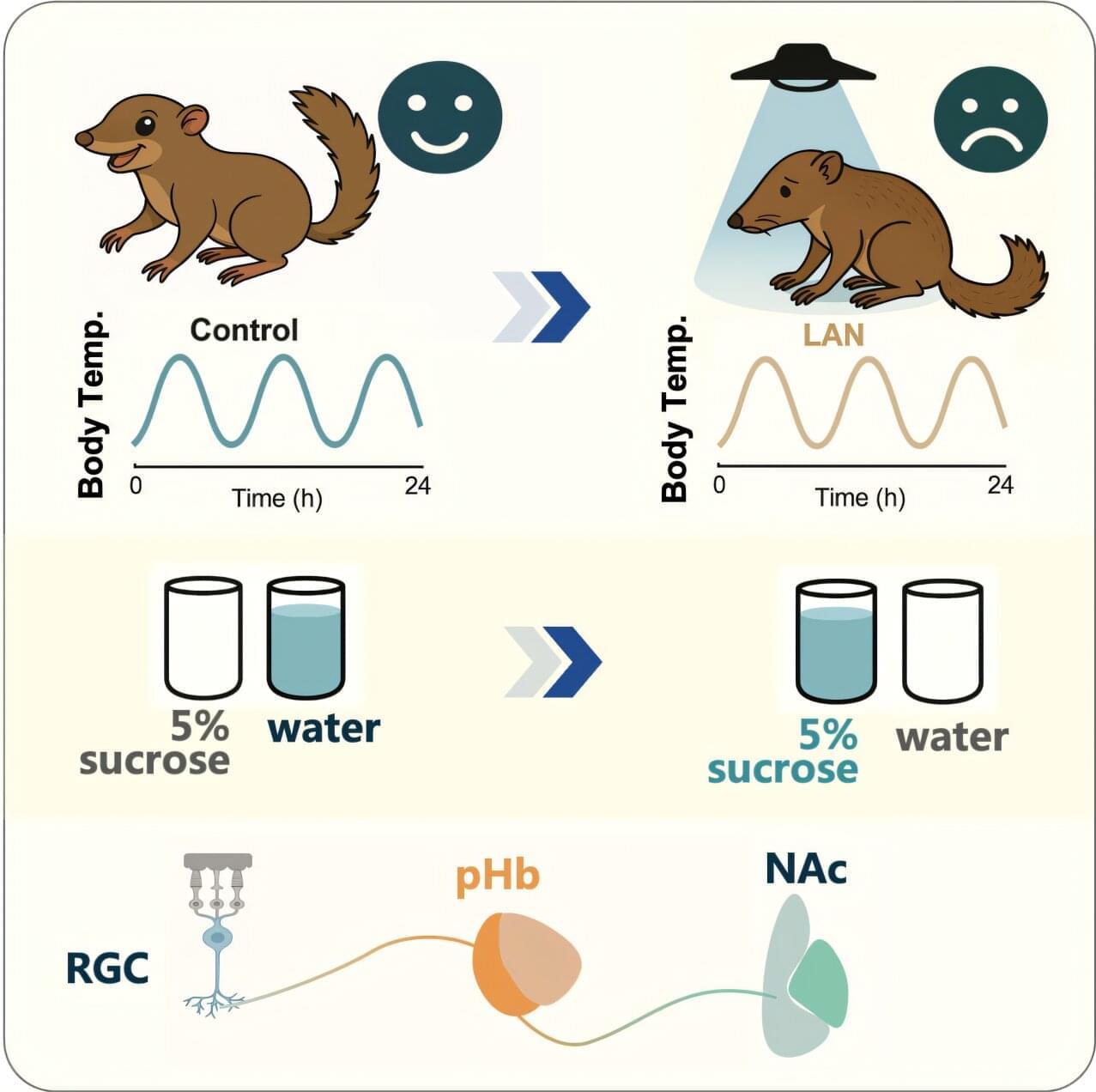A new study published in Proceedings of the National Academy of Sciences reveals that chronic exposure to artificial light at night (LAN) can trigger depression-like behaviors by activating a specific neural pathway in the brain.
The study, conducted on tree shrews—diurnal mammals genetically close to primates that are active during the day like humans—offers critical insights into how nighttime light may disrupt mood regulation, potentially affecting human mental health in increasingly illuminated urban environments.
The research team, led by Prof. Xue Tian from the University of Science and Technology of China (USTC), Prof. Yao Yonggang of the Kunming Institute of Zoology of the Chinese Academy of Sciences (CAS), and Prof. Zhao Huan of Hefei University, exposed tree shrews to blue light (comparable to bright indoor lighting) for two hours each night for three weeks.
